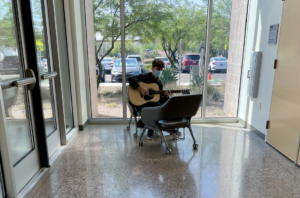Choice for equity
Education is political—especially in America. We argue about ends (standards), means (pedagogy), how students show what they know (assessment), scope (e.g., food, sex ed, services), funding, employment, governance, and accountability.
Some use a Horace Mann ‘education for democracy’ argument to justify a vision of a ‘Common School.’ But we also embrace our history of local control, so common but local—an initial paradox. Common and local sort of worked when many communities were homogonous. As many communities became more diverse, so did visions of schooling and differences in provisioning.
Our differences lead me to believe in educational choice—a parent’s right to choose an environment that best suits their child. These choices can and should be bounded particularly when public funding is involved (but not as standardized as current state standards require). They can and should include an obligation to teach US History and Civics. But beyond basic literacy, numeracy, and civics standards, I’m with the Dutch—let interested folks start schools and pay for it.
Like Paul Hill, I think an environment of choice can be governed in a way that promotes equity. The Center for Reinventing Public Education has produced a number of helpful resources in this regard including Doing Choice Right. It requires that we pay attention to where new schools are formed, who gets in, how transportation is provided, and how they’re funded.
Some folks promote choice as competition. I buy the argument, but haven’t seen much improvement as a result of competition—there are still terrible schools near KIPP academies. Good ideas don’t seem to walk across the street in education.
I support choice to promote equity. We can govern and fund a system that allows options, provides safeguards, and produces far more equitable results than we have today. And, perhaps we can resolve at least some of the arguments.





0 Comments
Leave a Comment
Your email address will not be published. All fields are required.